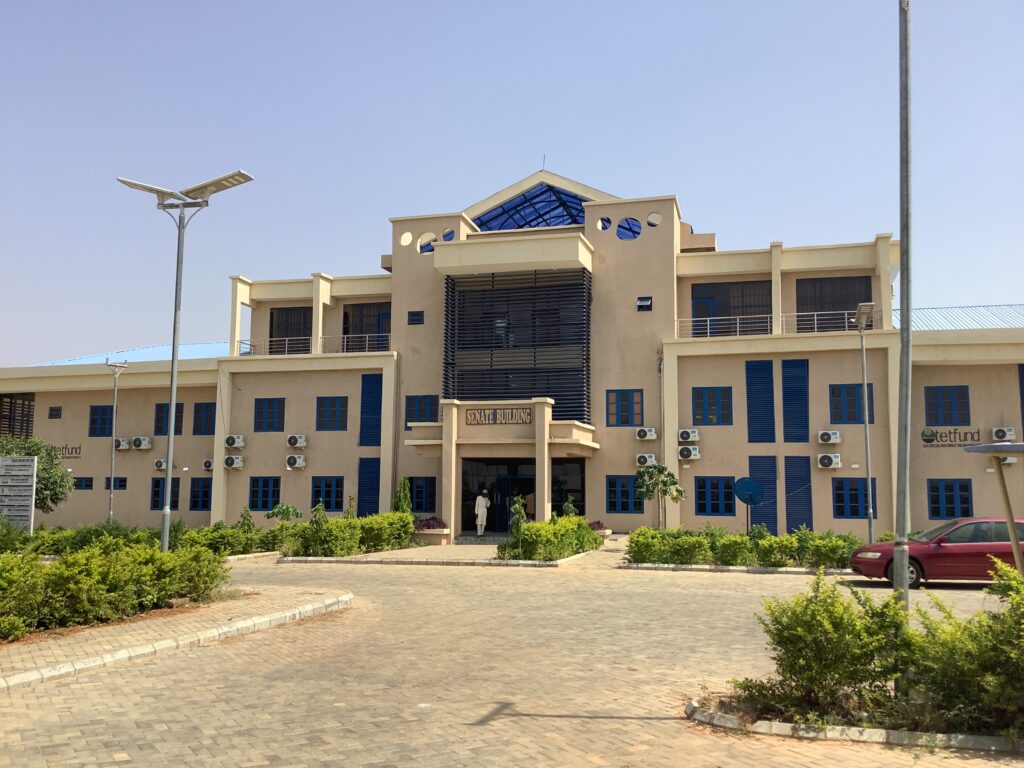The Department of Microbiology at the Federal University Birnin Kebbi (FUBK) was established to meet Nigeria’s growing demand for professionals in the microbiological sciences. It was established in 2013 as part of the university’s efforts to improve educational opportunities in the region and officially commenced operations in the 2014/2015 academic year. Dr. Sirajo Umar was the first head of the department with a small team of three faculty members. Later, the leadership passed to Professor Abbas Yusuf Bazata, followed by the current head, Dr. Mohammed Bashar Danlami. Since then, the department has grown to 15 academic staff, six laboratory personnel, and two administrative staff. The programme began with 32 students and has since produced six cohorts of graduates. There are currently around 400 students enrolled across four levels. Initially focused on core areas such as bacteriology, virology, mycology and parasitology, the department has broadened its scope to address local and national challenges in the areas of public health, agriculture and environmental sustainability. The department has ten offices for academic staff, two offices for laboratory staff and one office for departmental secretary. the department is equipped with two laboratories, two dedicated classes and four lectures theatres In addition to academic work, the department has developed partnerships with other departments and institutions to enhance research and promote health-related collaborative projects. The Department of Microbiology is committed to excellence and strives to prepare its students for the emerging challenges of microbiology.
Programmes

- BSC Microbiology
Admissions Requirements
Requirements
O level – ENG, MATH, BIO, CHE, PHY
UTME – BIO, CHE, PHY/MATH
Requirements
O-level – ENG, MATH, BIO, CHE, PHY
Two A-level passes in relevant subjects (Biology, Botany, Chemistry, Physics, Mathematics, and Geography) or ND in a relevant discipline with a minimum of lower credit.
What you will study
- GST111 – Communication in English
- GST112 – Nigerian Peoples and Culture
- MIC101 – Introduction to Medical Microbiology I
- MIC102 – Introduction to Medical Microbiology II
- COS101 – Introduction to Computing Science
- BIO101 – General Biology I
- BIO102 – General Biology II
- BIO107 – General Biology Practical I
- BIO108 – General Biology Practical II
- CHM101 – General Chemistry I
- CHM102 – General Chemistry II
- CHM107 – General Chemistry Practical I
- CHM108 – General Chemistry Practical II
- MTH101 – Elementary Mathematics I
- MTH102 – Elementary Mathematics II
- PHY101 – General Physics I
- MCB101 – Introductory Microbiology
- PHY102 – General Physics II
- PHY107 – General Physics Practical I
- PHY108 – General Physics Practical II
- CHM212 – Inorganic Chemistry II
- MCB204 – Medical Microbiology and Parasitology
- MCB203 – Basic Techniques in Microbiology
- CHM211 – Organic Chemistry II
- CHM210 – Physical Chemistry II
- MCB201 – General Microbiology I
- CHM213 – Analytical Chemistry I
- GST202 – Logic Philosophy and Human Existence
- GST201 – Communication in English II
- STA203 – Statistics for Agriculture and Biological sciences
- GST204 – Peace Studies and Conflict Resolution
- BIO202 – Introductory Ecology
- BCH202 – General Biochemistry II
- MCB202 – General Microbiology II
- BIO208 – Lower Invertebrates
- BCH201 – General Biochemistry I
- GST203 – History and Philosophy of Science
- BIO201 – Genetics I
- MCB301 – Microbial Genetics and Molecular Biology
- MCB309 – Food Microbiology
- BIO301 – Genetic Variability and Evolution II
- MCB398 – Student Industrial Work Experience Scheme I (SIWES)
- BCH308 – Food and Nutritional Biochemistry
- BCH301 – Enzymology
- MCB311 – Microbial Physiology and Metabolism
- MCB312 – Research Methods
- MCB308 – Biodeterioration
- MCB310 – Environmental Microbiology
- MCB302 – Bacteriology
- MCB305 – Soil Microbiology
- MCB307 – Immunology
- MCB304 – Microbial Ecology
- GST301 – Entrepreneurship and Innovation
- MCB306 – Introductory Virology
- MCB303 – Mycology
- GST302 – Venture Creation and Growth
- MCB401 – Pathogenic Microbiology
- MCB402 – Pharmaceutical Microbiology
- MCB403 – Principles of Epidemiology and Public Health
- MCB404 – Advanced Food Microbiology
- MCB405 – Industrial Microbiology and Biotechnology
- MCB406 – Parasitology
- MCB407 – Virology and Tissue Culture
- MCB408 – Petroleum Microbiology
- MCB409 – Microbiological Quality Assurance
- MCB490 – Essays in Microbiology
- MCB498 – Student Industrial Work Experience Scheme II (SIWES)
- MCB499 – Research Project
Research Interest
- The Department of Microbiology at FUBK focuses on advancing knowledge across key areas of microbiology, with an emphasis on addressing critical challenges in public health, agriculture, and biotechnology. Our research spans virology and molecular biology, exploring viral pathogenesis and genetic mechanisms of infectious diseases. We investigate bacteriology with a focus on microbial diversity, antibiotic resistance, and bacterial pathogenesis. In pharmaceutical microbiology, the development of vaccines and novel therapeutics is a core priority, complemented by studies on the effectiveness and safety of antimicrobials. We also emphasize parasitology, aiming to understand parasite-host interactions and control strategies for parasitic infections. Our food microbiology research ensures the safety and quality of food products through microbial assessment and control. Additionally, we explore microbial microcosms to study community dynamics, environmental resilience, and microbial ecology, contributing to sustainable solutions for agriculture and environmental management. Through interdisciplinary collaborations and cutting-edge research, the department aims to develop innovative solutions to global health issues and promote sustainable development.

DEPARTMENT STAFF
- Prof. Yusuf Abbas Bazata

